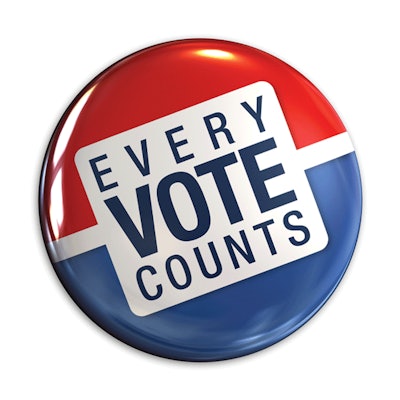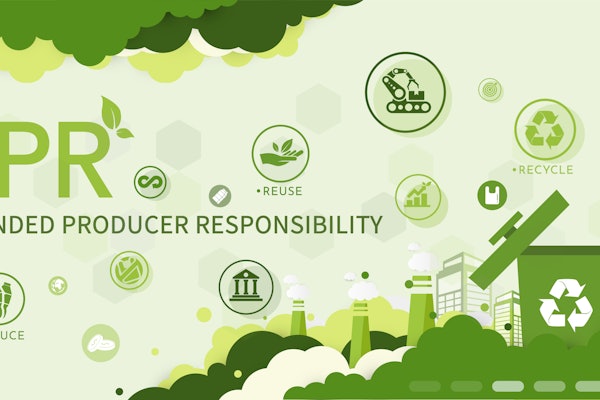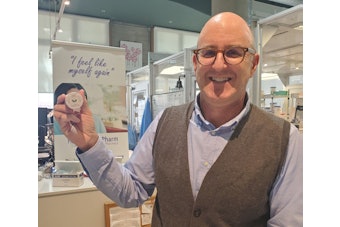
If you want to try to look ahead to what might happen to healthcare packaging businesses after the presidential election, there are plenty of available clichés and truisms to turn to. They can help start a discussion, but they usually don't tell the whole story.
You could stroke your beard and say knowingly that President Obama, if reelected, will continue his traditional pro-regulatory ways, adding burdens and obligations to business the way Democratic politicians do. Or you could remove your reading glasses, sigh, and say, well, if Mitt Romney is elected president, he's already promised he will get regulations out of business's way, so the climate will be generally better for business.
And, if you have time, you could get into a further level of complication by discussing the various combinations of possible White House occupants with possible party majorities in each house of Congress, and each one's effect on the president's ability to advance a program.
These clichés—of Democratic politicians adding government regulation and Republicans taking it away—are a good starting point for a lot of analyses. The world, in that way it has, is proving a little more complicated, though.
For example, what are we to make of the fact that President Obama's administration is overdue with some of the most important regulations it was supposed to have issued by now to implement a new food safety law? And these are big ones, including the rules about the HACCP-type safety programs for food makers and certifications of food importers. Could they be afraid of coming out with them in the months before an election lest they be accused of fitting the stereotype of over-regulation? (The fact that the making of those regulations was ordered on them by Congress as part of the law—the FDA Food Safety Modernization Act—is a nuance most pundits will just ignore.)
It could be that is indeed their worry—in keeping with another age-old truism, often applied to Congress, that nothing much gets done in an election year because anytime you make a decision or pass a law, you make someone mad at you. So it's the Obama administration that in this respect is going easy on regulatory burdens.
Next question: Governor Romney promises to remove regulatory burdens from industry, but does he include in that goal some regulations aimed at making drugs, devices, and food safer? That's not clear; usually he is referring to more direct business, investment, and banking regulatory controls. On the other hand, though, it's long been the view of many free-market advocates that FDA regulations don't really help make consumers safer and instead just get in business's way, so it should get out of the drug and device approval and food safety businesses.
Economist Milton Friedman used to make that argument, saying more people die from missing out on drugs FDA takes too long to review than die from those that get to market without FDA review (and civil suits, bad publicity, and other controls would still push companies to do the right thing). So we might see more advocacy of positions of that type from a President Romney.
It's tempting to imagine removing regulators from one's business, but most companies would rather have them, provided the regulators are fair, sensible, and responsive. When regulators back off altogether from enforcing the rules, a well-intentioned company ends up forced to compete with companies that don't follow the rules, and save money doing so and do so with impunity. Let the regulators get overzealous, though, and that's a nightmare of its own, as you have to defend against groundless accusations or jump through silly hoops, and all the while your competitors don't have to do any of it.
So my advice in trying to predict the results of the election: Resort to the cliches and truisms if you are so inclined, just be sure to use them only as a starting point for analysis. And don't forget to vote!
—Eric F. Greenberg, PC is the legal columnist for Healthcare Packaging
You could stroke your beard and say knowingly that President Obama, if reelected, will continue his traditional pro-regulatory ways, adding burdens and obligations to business the way Democratic politicians do. Or you could remove your reading glasses, sigh, and say, well, if Mitt Romney is elected president, he's already promised he will get regulations out of business's way, so the climate will be generally better for business.
And, if you have time, you could get into a further level of complication by discussing the various combinations of possible White House occupants with possible party majorities in each house of Congress, and each one's effect on the president's ability to advance a program.
These clichés—of Democratic politicians adding government regulation and Republicans taking it away—are a good starting point for a lot of analyses. The world, in that way it has, is proving a little more complicated, though.
For example, what are we to make of the fact that President Obama's administration is overdue with some of the most important regulations it was supposed to have issued by now to implement a new food safety law? And these are big ones, including the rules about the HACCP-type safety programs for food makers and certifications of food importers. Could they be afraid of coming out with them in the months before an election lest they be accused of fitting the stereotype of over-regulation? (The fact that the making of those regulations was ordered on them by Congress as part of the law—the FDA Food Safety Modernization Act—is a nuance most pundits will just ignore.)
It could be that is indeed their worry—in keeping with another age-old truism, often applied to Congress, that nothing much gets done in an election year because anytime you make a decision or pass a law, you make someone mad at you. So it's the Obama administration that in this respect is going easy on regulatory burdens.
Next question: Governor Romney promises to remove regulatory burdens from industry, but does he include in that goal some regulations aimed at making drugs, devices, and food safer? That's not clear; usually he is referring to more direct business, investment, and banking regulatory controls. On the other hand, though, it's long been the view of many free-market advocates that FDA regulations don't really help make consumers safer and instead just get in business's way, so it should get out of the drug and device approval and food safety businesses.
Economist Milton Friedman used to make that argument, saying more people die from missing out on drugs FDA takes too long to review than die from those that get to market without FDA review (and civil suits, bad publicity, and other controls would still push companies to do the right thing). So we might see more advocacy of positions of that type from a President Romney.
It's tempting to imagine removing regulators from one's business, but most companies would rather have them, provided the regulators are fair, sensible, and responsive. When regulators back off altogether from enforcing the rules, a well-intentioned company ends up forced to compete with companies that don't follow the rules, and save money doing so and do so with impunity. Let the regulators get overzealous, though, and that's a nightmare of its own, as you have to defend against groundless accusations or jump through silly hoops, and all the while your competitors don't have to do any of it.
So my advice in trying to predict the results of the election: Resort to the cliches and truisms if you are so inclined, just be sure to use them only as a starting point for analysis. And don't forget to vote!
—Eric F. Greenberg, PC is the legal columnist for Healthcare Packaging





















